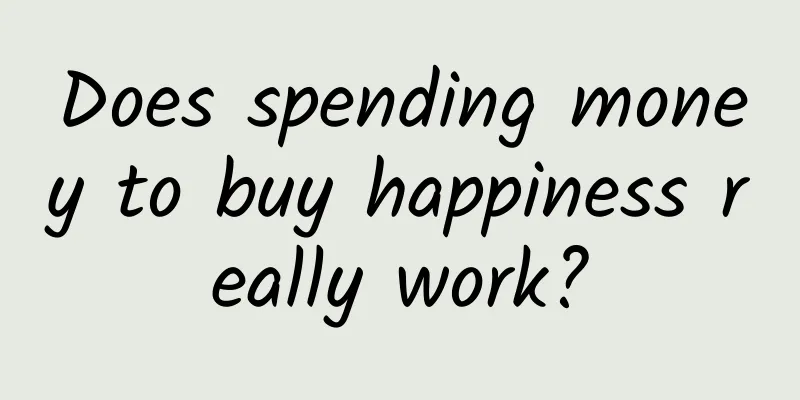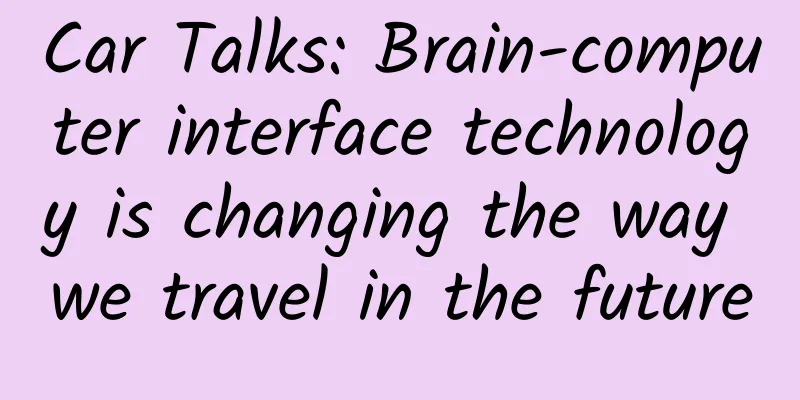Does spending money to buy happiness really work?

|
It’s the Double Eleven shopping season again. Have you experienced the joy of emptying your shopping cart? Every time I vow not to buy anymore, I can’t help but place an order a few days later, especially when I’m in a bad mood. Besides wanting to show off my fans, I also want to buy. If you don't believe it, look back at your electronic bills from the past few months, and you will find that on days when you feel anxious, confused, tired, angry, and other negative emotions, there are always a few more expenses in your account book. After a big shopping spree, you will feel better for no reason. Why is that? Source: hippopx 1. Retail therapy can help alleviate stress It is not a coincidence that people want to shop when they are in a bad mood. Scientific research has found that when people are in a low mood, they are more likely to relieve their emotions by "buying, buying, buying". In 2013, sociologist Rick and others conducted an experiment in which 100 people were randomly invited to watch a video about a boy who lost his father at an early age. The group was then divided into an experimental group and a control group. The experimental group was told that they had $100 to buy travel essentials and that they could pick 4 out of 12 items and put them in the shopping cart. The control group was simply told to pick out 4 of the 12 items that were most essential for the trip. After completing the task, the researchers used an emotional scale to measure the sadness of the two groups of people. The results showed that the sadness level of the experimental group was significantly lower than that of the control group. This also proves that shopping does have a positive impact on people's negative emotions. Source: hippopx In addition to regulating emotions, "shopping" can also relax tense nerves. Yallow, a famous consumer psychologist, believes that people do not need to use their brains when shopping, so many people will quickly take out their mobile phones and open shopping apps in between completing a complex task. This is equivalent to a short mental escape, which allows the brain to rest and improve its state to cope with subsequent work. Compared with real travel that requires packing and planning, this way of relaxing oneself in a timely manner with the convenience of online shopping is more in line with the pace of life of young people today. Source: pexels The above two shopping advantages can be attributed to the explanation of "retail therapy", a term first appeared in the Chicago Herald published on Christmas Eve in 1986. It refers to a self-healing method for people to self-regulate, release stress, and relieve negative emotions through shopping. Obviously, compared with such gentle ways of relieving stress as "taking a walk to sleep" and "spending time with family and friends", modern young people who are busy in a fast-paced life full of fragmented information seem to be more loyal to this kind of timely feedback. 2. More retail therapy In addition to the benefits mentioned above, "retail therapy" has more healing effects that you may not know. 1. Help people adapt to life changes Ajanant and Srinarong, scholars from Thailand, once proposed that when people face some important moments in life, such as changing jobs, getting married, and having children, they will use shopping to help themselves adapt to the new life faster and better. Later, the famous psychologist Kit Yarrow shared a case in his blog to support this point of view: the interviewee Janice said that when she ended her marriage with her husband of more than ten years, she immediately spent several hours picking out a set of brand new and gorgeous bedding. She shared: "These few hours were very meaningful. The shopping process was like saying goodbye to my past self. I felt that I was ready to start over." Source: pexels When you shop, you can’t help but imagine what your life will be like with that item, which is very similar to the “visualization” technique in psychotherapy, where people use their imagination to create a mental sensory experience to relieve the stress of the present moment. On the other hand, the "new life" created through shopping also gives people positive psychological hints. Yarrow mentioned that "just as people imagine themselves in certain clothes and get a new sense of identity and power that matches the clothes, people can also behave more in line with their identity roles through this positive self-suggestion." Source: pexels 2. Improve people’s sense of control over their lives Shopping can be seen as an active choice in life. The results it brings you are completely predictable. This process can enhance people's inner sense of control over life. Columnist Cong Pengpeng changed her birth plan due to an accident during her pregnancy. During the days when her rhythm was disrupted, she wanted to get into the e-commerce platform to vent her anxiety and worries by shopping. Only when she placed an order for maternal and child products could she feel at ease for a moment that she was "preparing for the future". Source: hippopx Under the guise of "retail therapy", shopping seems to have become a sport that can comfort and calm people. However, in reality, the button with the words "confirm payment" is not the victory end of the virtual level, but the window to claim the cost. The survey found that 55% of people who have used zero-reception therapy have become more anxious because of the unexpected consumption. Under this anxiety and self-blame, they relieve it through another crazy shopping spree, thus falling into a vicious cycle. On the other hand, many merchants are also using transaction utility (the effect of the difference between the reference value of a product and its actual price) to stimulate consumers to make irrational consumption . This can explain why we buy more items we don’t need during Double 11. With shocking prices and merchants’ deliberate packaging, every seemingly “profitable” consumption is actually a scam carefully manipulated by merchants. Source: pexels In the information age, we are inseparable from online shopping, which has become one of the many double-edged swords that come with technology. How to wield this sword depends on each person's choices and habits. |
<<: You have definitely never seen a “penguin with long legs”!
Recommend
While flying, the window disappeared and the captain was sucked out...
At 7:20 in the morning, the plane took off as usu...
BYD's second-generation Yuan PLUS Intelligent Driving Edition: a new benchmark for A-class pure electric SUVs in the era of intelligent driving equality
On March 5, 2025, BYD Dynasty series added anothe...
Why do people fall asleep as soon as they get on the bus? It turns out that this is how they are "hypnotized"!
Have you ever had this experience: when you are o...
Apple is no longer the industry leader after being forced out by domestic brands
In this era of rapid technological development, o...
If the APP is renamed well, there will be no loss of users!
1. Why did the App product change its name? For m...
Lichuan SEO Training: Why do search engine marketing? Which is the largest search engine?
Many people use search engines when they surf the...
99% of the copywriting that chases hot topics is wrong. Look at this picture to see the core code of new media copywriting!
I don’t know when the mobile phone industry start...
Why do we say that the Earth once had rain for millions of years before the ocean was formed?
The Earth is a planet filled with liquid water, w...
WeChat red envelope cover is open to individuals, 1 yuan each
According to official news from the WeChat team o...
Mobile Tool App Delivery Insight Report for the First Half of 2019
In the first half of 2019, mobile tool apps ranke...
The most elite Eight Banners soldiers, from the Solon and Dahur soldiers outside the Great Wall, still went to fight in the Dzungar at the age of 80.
Now when people mention the Eight Banners soldier...
Perfection: My Oculus Rift Consumer Edition Experience Report
Recently, I was lucky enough to get a chance to e...
Are Big Bear and Little Bear in Boonie Bears cute? But feeding bears in the wild is really dangerous!
During holidays, many friends choose to get close...
Volkswagen's old problem: Beijing Hyundai recalls a large number of Tucson due to dual-clutch problems
Many car-savvy friends know that dual-clutch tran...
What is bidding hosting?
The so-called bidding hosting mainly refers to th...









